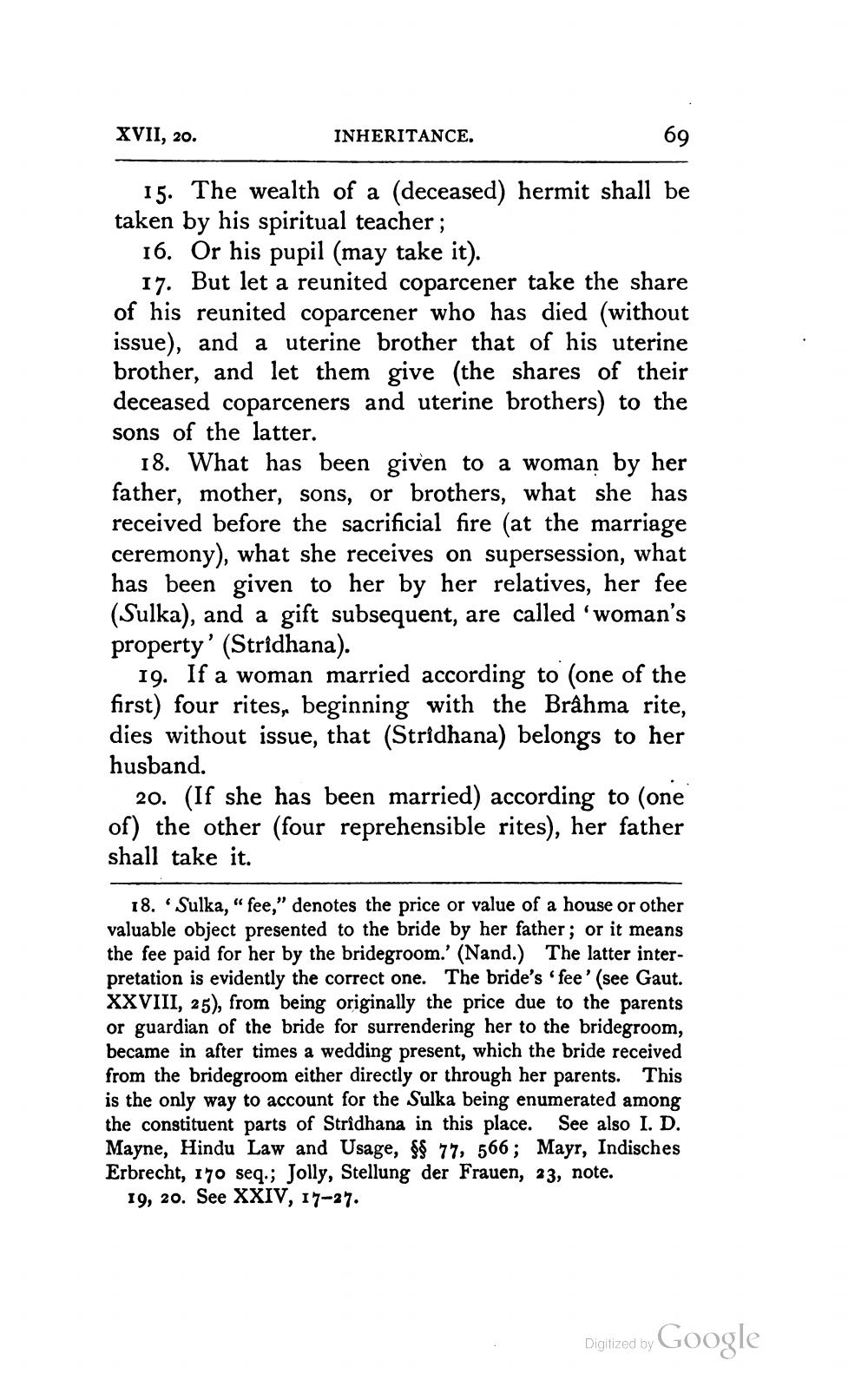________________
XVII, 20.
INHERITANCE.
15. The wealth of a (deceased) hermit shall be taken by his spiritual teacher ;
16. Or his pupil (may take it).
17. But let a reunited coparcener take the share of his reunited coparcener who has died (without issue), and a uterine brother that of his uterine brother, and let them give the shares of their deceased coparceners and uterine brothers) to the sons of the latter.
18. What has been given to a woman by her father, mother, sons, or brothers, what she has received before the sacrificial fire (at the marriage ceremony), what she receives on supersession, what has been given to her by her relatives, her fee (Sulka), and a gift subsequent, are called 'woman's property' (Stridhana).
19. If a woman married according to (one of the first) four rites, beginning with the Brahma rite, dies without issue, that (Stridhana) belongs to her husband.
20. (If she has been married) according to (one of) the other (four reprehensible rites), her father shall take it.
18. Sulka, "fee," denotes the price or value of a house or other valuable object presented to the bride by her father; or it means the fee paid for her by the bridegroom.' (Nand.) The latter interpretation is evidently the correct one. The bride's 'fee' (see Gaut. XXVIII, 25), from being originally the price due to the parents or guardian of the bride for surrendering her to the bridegroom, became in after times a wedding present, which the bride received from the bridegroom either directly or through her parents. This is the only way to account for the Sulka being enumerated among the constituent parts of Strîdhana in this place. See also I. D. Mayne, Hindu Law and Usage, $$ 77, 566; Mayr, Indisches Erbrecht, 170 seq.; Jolly, Stellung der Frauen, 23, note.
19, 20. See XXIV, 17-27.
Digitized by Google




